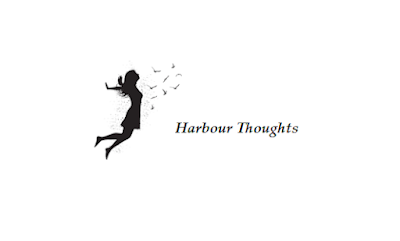The Apparition
By Duncan Campbell Scott
Gentle angel with your mantle,
All of tender green,
I was yearning for a vision
Of the life unseen.
When you hovered in the sunset,
Just as rain was done;
Where the dropping from the poplars
Seemed like rain begun.
There you gathered forming slowly
Rounding into view:
All your vesture glowed like verdure
When the sap is new.
Then you mutely gave your warning
And I felt the stress
Of its passion and its presage
And its utterness.
There you swayed one tranquil moment,
Mystically fair,
Then you were not of the sunset,
Were not in the air.
Poem Analysis:
Duncan Campbell Scott’s poem The Apparition is a hauntingly beautiful exploration of the intersection between the seen and the unseen, the physical and the spiritual. Using vivid imagery and a mystical tone, Scott captures a fleeting encounter with an ethereal being. The poem’s ABCB rhyme scheme and lyrical structure create a sense of rhythm and fluidity, reinforcing the theme of a transient vision.
The Supernatural and the Unseen
The poem opens with a reference to a gentle angel, immediately signaling an engagement with the supernatural. The speaker expresses a yearning for a glimpse beyond the physical world:
I was yearning for a visionOf the life unseen.
This sets the tone for the poem as a spiritual or mystical experience, where the speaker desires to witness something beyond ordinary perception. The angel’s arrival in the aftermath of rain suggests a cleansing or renewal, reinforcing the idea that this apparition is a glimpse into something divine or otherworldly.
Nature as a Medium for Revelation
Nature plays a crucial role in Scott’s depiction of the apparition. The angel appears just after the rain, blending seamlessly with natural elements:
When you hovered in the sunset,Just as rain was done;
The imagery of dropping from the poplars that seems like rain begun creates a sense of continuity between the natural and the supernatural. The apparition does not disrupt nature but rather emerges from it, suggesting that the spiritual and the earthly are closely intertwined.
Transformation and Fleeting Beauty
The third stanza describes the gradual formation of the angelic figure:
There you gathered forming slowlyRounding into view:
The imagery of vesture glowed like verdure when the sap is new evokes freshness, vitality, and renewal. However, this moment of revelation is short-lived, as the angel remains only for an instant before disappearing. This transience reinforces the elusive nature of spiritual visions and moments of deep insight.
Silent Communication and Emotional Impact
The apparition does not speak, yet its presence conveys a powerful message:
Then you mutely gave your warningAnd I felt the stress
This warning remains ambiguous—perhaps it signifies a prophetic message, a personal revelation, or an omen. The words stress, passion, and presage suggest an emotional intensity, as though the vision carries a deep and unavoidable truth.
The Dissolution of the Vision
The final stanza describes the angel’s disappearance:
Then you were not of the sunset,Were not in the air.
The repeated negation emphasizes the suddenness and completeness of the apparition’s departure. The angel is neither part of the natural world nor the sky—it exists beyond them, reinforcing the fleeting and ineffable nature of the encounter.
Poetic Structure and Style
- ABCB Rhyme Scheme: The poem follows an ABCB rhyme scheme, which contributes to its flowing yet slightly unpredictable rhythm. This structure mirrors the theme of an apparition—something fleeting and difficult to grasp. The varied rhyming pattern adds to the poem’s dreamlike quality, making it feel more spontaneous and ethereal.
- Vivid, Sensory Imagery: Scott’s use of imagery is essential to the poem’s impact. The descriptions of natural elements—sunset, rain, poplars, verdure—create a rich sensory experience, grounding the supernatural vision in the tangible world. The imagery also reinforces the interconnectedness of nature and the spiritual realm.
- Lyrical and Meditative Tone: The poem’s tone is both lyrical and reflective, capturing the awe and emotional depth of the speaker’s experience. Scott’s choice of words—mutely, mystically, swayed, tranquil—adds to the hushed reverence of the moment, making the reader feel as though they, too, have witnessed something extraordinary.
The Apparition by Duncan Campbell Scott is a deeply evocative poem that explores the ephemeral nature of spiritual encounters. Through its use of nature imagery, subtle rhyme scheme, and a meditative tone, the poem captures the wonder, intensity, and ultimate elusiveness of a mystical vision. The fleeting presence of the angel suggests that moments of divine insight or revelation are rare and transient, leaving behind a sense of longing and mystery.
Scott masterfully blends the earthly with the ethereal, creating a poem that lingers in the reader’s mind much like the apparition itself—momentarily vivid, yet forever out of reach.
